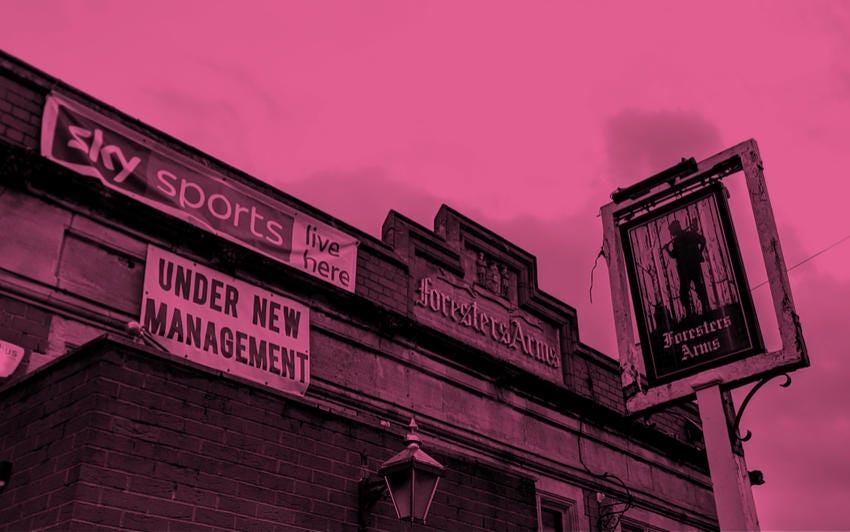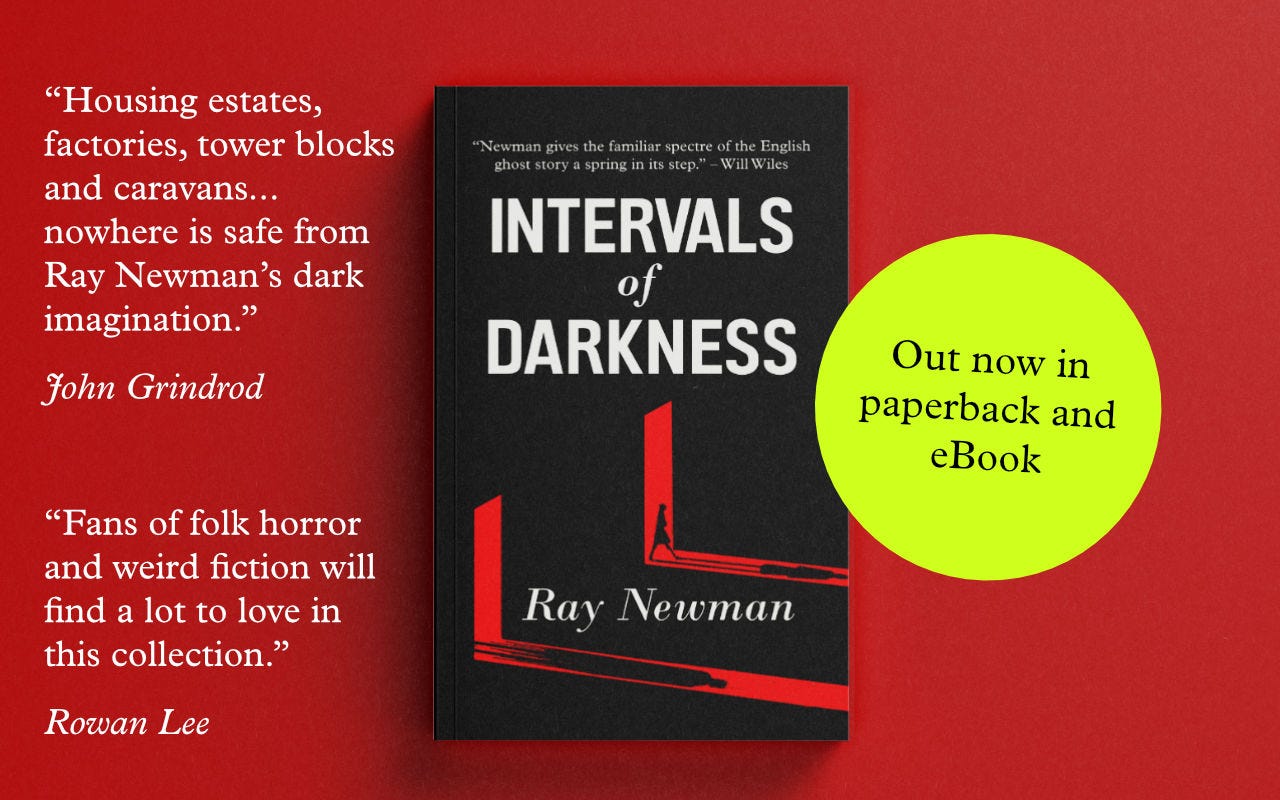Under new management
When we talk about ‘perfect pubs’ do we give enough credit to the contribution of individual publicans or managers?
We tend to think of pubs almost as autonomous entities. They exist. They have their own energies. They persist over centuries as governments, customers and publicans come and go.
But is The Duke’s Legs under Alex really the same pub as The Duke’s Legs under Sam?
We’re not talking about big, superficial changes, even – elaborate makeovers, new paint jobs, and so on.
It’s more about the vibe that a new landlady, landlord or manager can bring. Or, of course, destroy, overnight.
We’re pretty bad at keeping up on gossip about which individuals are running which pubs. So sometimes, we’ll just notice that a pub has got subtly better, or worse, and not really know why.
Then, talking to more clued-up friends, we’ll learn that Norris has left The Nags Head and been replaced by Cora, who used to be at The Curious Orange, where they’ve got some new guy in who used to run The Mountains of Madness, and so on.
The changes we notice might be quite subtle (suddenly, there are no beer mats, because Cora doesn’t like them) or more profound. Certain managers, for example, seem to lift up the team behind the bar and so improve the overall mood of the pub.
While others, sadly, seem to bring them down.
One pub comes to mind where the bar staff always seem moments away from throwing down their tea towels and marching out. There’s an air of low-key misery about the place which, we think, emanates from the low-key misery of a manager.
As beer geeks, the quality of the beer is obviously something we notice, too. The range of beer isn’t always in a manager’s control – although a good manager will have the knack of choosing good stuff from a limited list. But its condition, and the way it is presented, can be something they’re able to influence.
When we asked our supporters on Patreon about this, one person mentioned The Harp in Covent Garden:
Karl Seville left a few years ago. I don't know what changed, exactly… but the quality of the offering suffered. The range of beers seemed to get narrower, and the drinks lacked life. Like the casks had been tapped days before the beers went on.
Going back 30+ years you might compare this to Mark Dorber’s reign at The White Horse in Parsons Green, West London, where his obsessive interest in the specifics of caring for cask ale elevated the reputation of the pub.
Someone else mentioned James Rawnsley who was managing Arcadia in Leeds when Pellicle published this piece by Neil Walker in 2021:
“Before I started we always had a Belgian line [and] an American line,” James says. “But the quality of British beer has improved so much we’ve upped the amount of UK craft we put on [from the likes of] Cloudwater, and Northern Monk—more hop-forward, modern British beers.”
After his departure, our correspondent says, it lost its mojo.
Closer to home, another commenter mentioned The Stag & Hounds in Bristol:
“[The pub company gave] the old manager… two months’ notice at the end of 2022. With him went the well-established core staff he had employed, as well as the food provider he had contracted (a pizza company). Since then, the pub remains busy but just doesn’t feel quite as good or welcoming. The food became burgers (not as good for sharing), the staff were slower and less interested, and the background music got louder. I tried to keep the faith, but one day I realised the Sky Sports posters in the loo were advertising matches from a few months back and felt that nobody working there seemed to care as much about the pub as the old team, which prompted me to ask myself why I should either.”
How do you retain good managers? Pay them more, probably, as in any other profession.
How do you find good managers? That’s trickier.
By spotting members of staff who show an interest in getting the details right, maybe, or who seem energised by dealing with customers, rather than ground down by it, and promoting them.
Ray’s new book
Ray has a new book out. Intervals of Darkness is a collection of 14 weird stories. You can buy it from Amazon…
…or contact us if you want to buy a signed copy direct from Ray, with an exclusive handmade zine and some other bonus bits, for £12 including UK delivery.
“Newman returns to haunted Britain with fourteen more wonderful stories… Fans of folk horror and weird fiction will find a lot to love in this collection.” – Rowan Lee in her review at The Harvest Maid’s Revenge
“Impressively eerie and packed with shocks, Intervals of Darkness ushers the reader through 1970s grime and Gothic opulence, with moments of powerful poignancy and startling strangeness. You’ll want to linger over these stories.” – Verity Holloway, editor of Cloister Fox and author of Pseudotooth and The Others of Edenwell
“Housing estates, factories, tower blocks and caravans, nowhere is safe from Ray Newman’s dark imagination. Existing somewhere between Robert Aickman and JG Ballard, these blackly funny tales are sure to chill you, no matter how high you turn the central heating. It’s every bit the equal of Municipal Gothic, and if anything it’s darker and stranger.” – John Grindrod, author of Concretopia, Iconicon and Outskirts

Psychogeographers in the pub
A couple of months ago we wrote about pub crawling as a form of psychogeography. Now, in Iain Sinclair’s 1997 book Lights out for the Territory, we came across this description of a pub in North Woolwich:
“And, meanwhile, there's the Royal Pavilion opposite the station: THIS IS WHERE THE BIG LAMBS HANG OUT. A couple of Guinnesses and something to eat. See how it looks after that… The vast bar (two regulars in) represents good times known. And paid for. They must have had a decent crowd the night the Princess Alice went down: newspaper men, disaster gulls, hopeful relatives. Stout's off. No food. Not on Tuesdays. A packet of stale crisps, autopsy scratchings stiffened with vinegar, will have to fill the gap. An abominable cigar, presumably salvaged from the wrecked paddle-steamer. DIAMOND WHITE EXTRA STRONG WHITE CIDER. PEEL AND REVEAL. Life is creeping back into the veins. Marc sneezes. Steam rises from our coats. Get in another round. The edge has been taken from the afternoon.”
It’s easy to romanticise pubs. This makes clear how crap they can be while still, somehow, being enchanting.
On the blog
We managed to be a little more productive this month. Jess wrote two posts on her own. The first was about her cycling adventure across Dartmoor. The second was about the challenge of finding a pub in a strange town with only your phone for reference.
While Jess was cycling, Ray was wandering the streets of Bristol absorbed in an audiobook of SPQR by Mary Beard. That prompted some thoughts about the relatability of pubs and beer culture in Ancient Rome.
Together, we reported on the refurb and reopening of The Crown, an imposing Bristol pub famous for its Bass. It’s round the corner from The Swan With Two Necks which means we now have the makings of a nice little crawl.
There were also the usual weekly round-ups of good writing about beer and pubs.
And, on Patreon, notes on the best beers we drank each weekend, plus footnotes on news, nuggets and longreads, with commentary and bonus links.
And, that’s it, that’s your lot, until next month.
Cheers,
Ray & Jess







